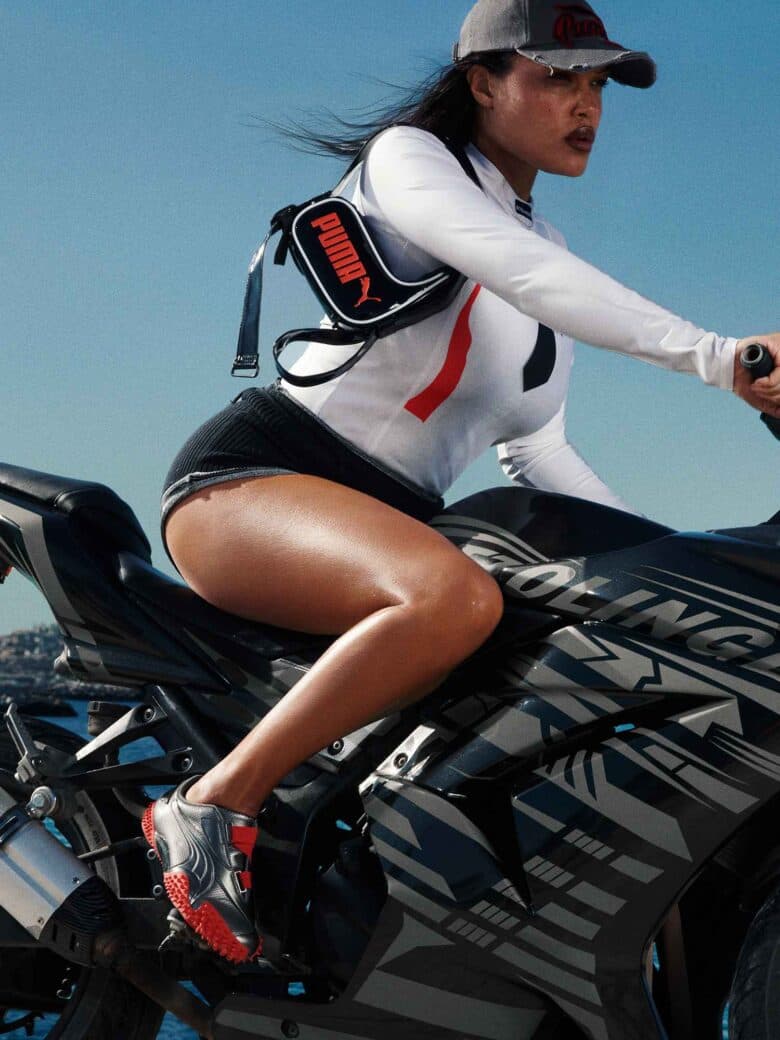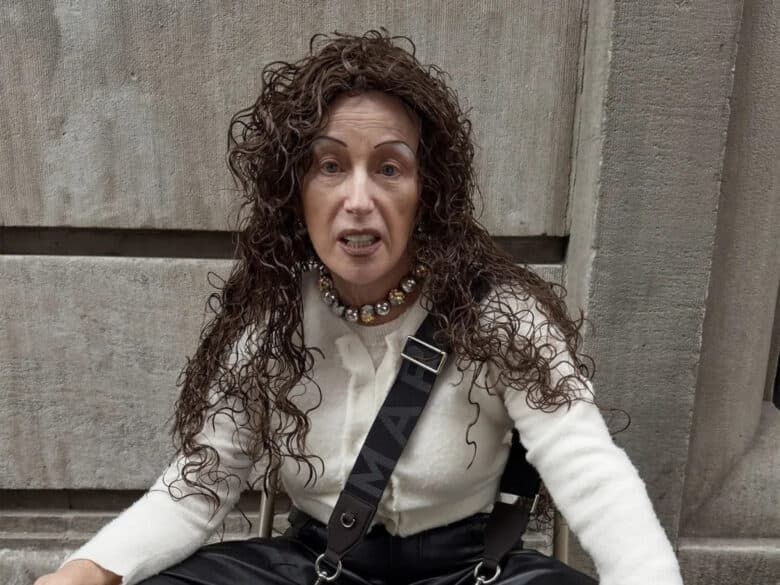Archie Madekwe on crushes, the importance of mixed-race representation and the Sag-Aftra strike
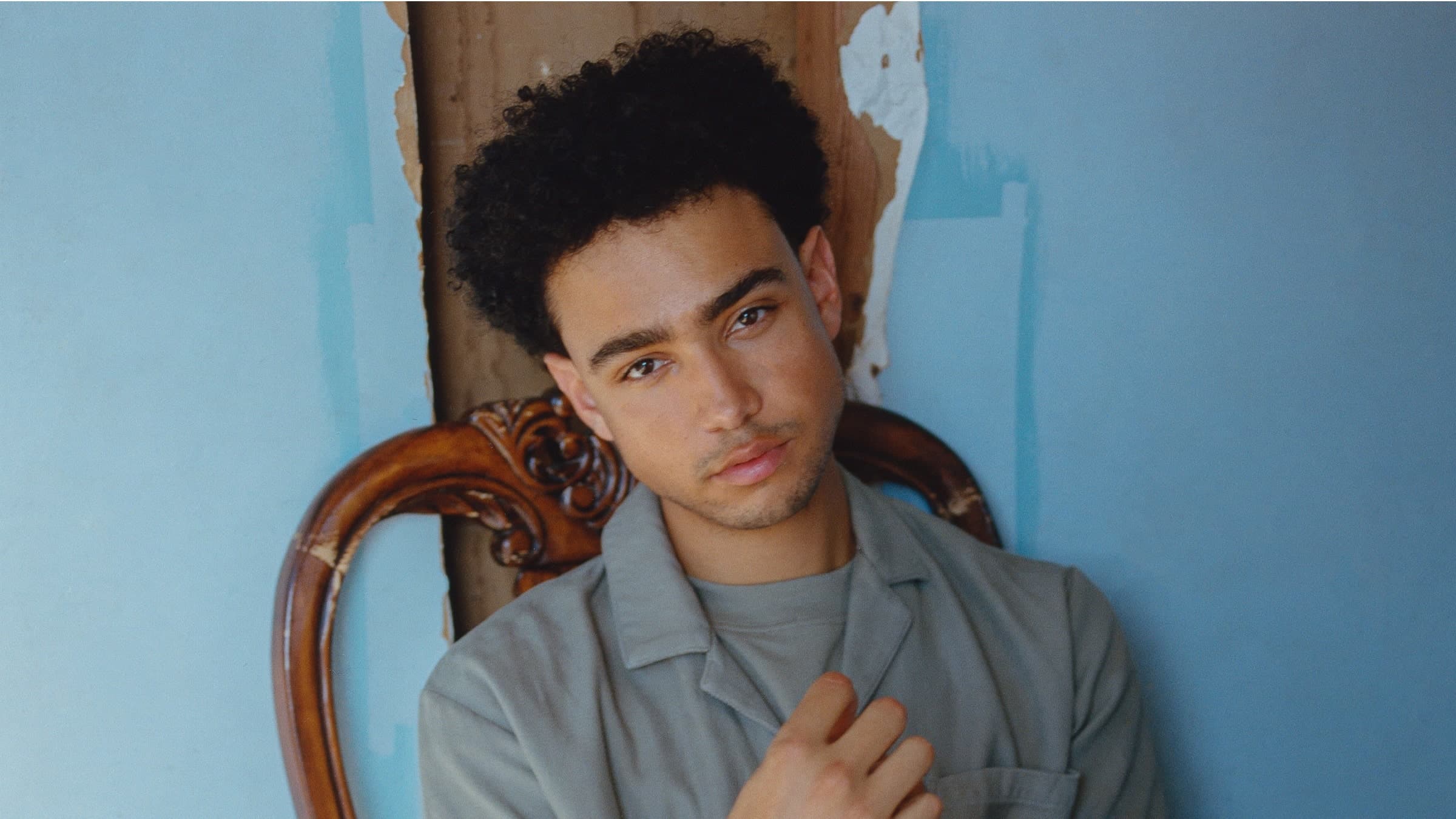
“I remember thinking, ‘I’ll never fall in love,’” recalls the actor Archie Madekwe as he chats about his childhood crushes. “Whenever anyone had a crush on TV, their love interests were always white. I didn’t see myself. Ever.” The 28-year-old has joined the Zoom call from his digs in LA, where he’s likely working on a new project, but one that he’s not going to discuss – the Sag-Aftra strikes happening at the time of our conversation rightly cast a shadow over any form of promotion.
“So much of our education is through entertainment, TV, film, theatre,” the south London-born actor continues. “I want to be able to normalise experiences, and for people to see themselves on screen and know that anything is possible.” Madekwe is aware that when he takes on a role it’s sometimes the first time someone who looks like him has ever played that part. Now the actor is determined to be the representation he didn’t have growing up, to uncover lost histories and show how Black experiences have always been woven into the fabric of these stories, even if they haven’t always been depicted.
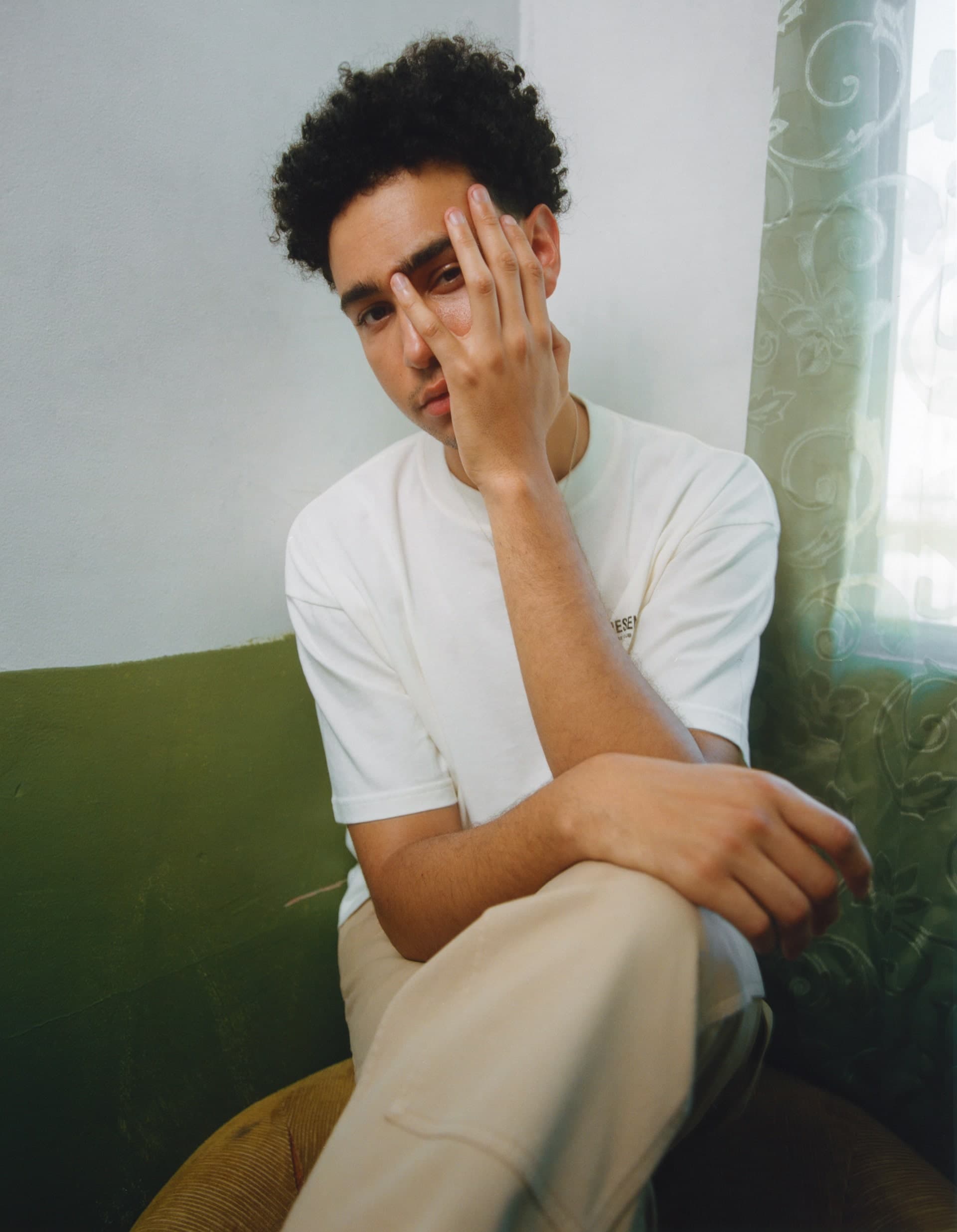
Madekwe cut his teeth on stage in the West End, making his debut in 2017 in Edward Albee’s controversial play The Goat, or Who Is Sylvia? (adultery, murder, bestiality… that kind of thing), alongside Damian Lewis and Sophie Okonedo. But his breakthrough roles came in 2019 when he was cast in Apple TV+’s sci-fi series See and Ari Aster’s folk horror Midsommar, which quickly became a widely loved cult film. Fastforward to 2023 and Madekwe’s latest project, Gran Turismo, tells the true story of racing driver Jann Mardenborough, whose mastery of the hugely popular PlayStation game led to his career in professional motorsport. It’s a tale that shows the possibility of breaking into careers in unconventional ways. But, once again, the ongoing strikes are a big part of Madekwe’s life right now, so he refrains from speaking about this and all forthcoming projects, including the drama Saltburn, which he is starring in alongside Barry Keoghan and Euphoria’s Jacob Elordi and was written and directed by Emerald Fennell (Killing Eve, Promising Young Woman).
The strikes have led writers, actors, producers and crew members to all join together in an act of defiance against the financial inequalities in the industry and sky-high deals for the same few faces. “Most of the time, you can’t live off the money,” Madekwe says of acting, speaking from experience. “You walk away with about 40 per cent of what you actually think you’re going to make once you pay your agents, your lawyers, your managers, your publicist, your tax. You’re not allowed to go off and do another job while you’re filming and you don’t know when the next job’s going to be, so how are you supposed to pay your bills? It’s an absolute scandal.”
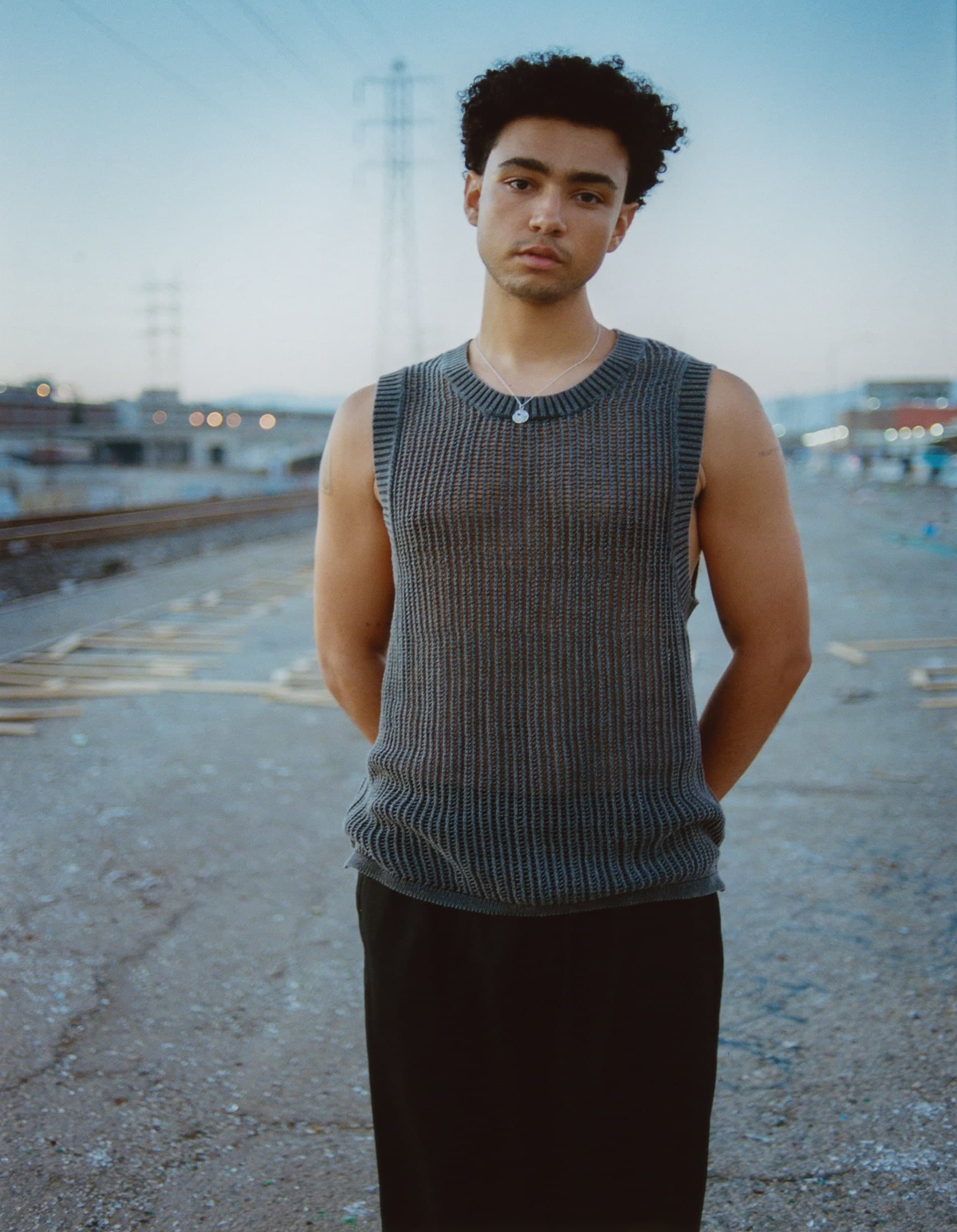
Madekwe feels privileged to be in a place now where he is making enough money from acting, but it hasn’t always been this way. When he met the producer Jacquie Glanville (The Other Boleyn Girl, My Mad Fat Diary) while on a work placement as a teenager, she gave him a piece of advice that has stayed with him. She asked him what he wanted to do. “I want to be an actor, but if not an actor then probably… ” he began. Glanville cut him off. “You want to be an actor,” she said. “That’s what you’ll do. Don’t give a back-up because you’ll fall into the back-up because it’s too hard.”
Much like many others involved in the strikes, particularly those working as extras, sometimes he worries about what he would do should AI take his job. “One of the questions with the strike is about AI and the idea of scanning people to cut costs and churn out more entertainment,” Madekwe says. “But the human experience of being alive is that we’re creating this ourselves. Art is escapism. It’s education. It’s being able to meet people that you would never have met before, to see cultures, to see experiences. Whether it’s film, TV, music, it gives young people and all people ways out and ways in. The more they take money away from it, the less they see it as a fundamental, necessary thing.”
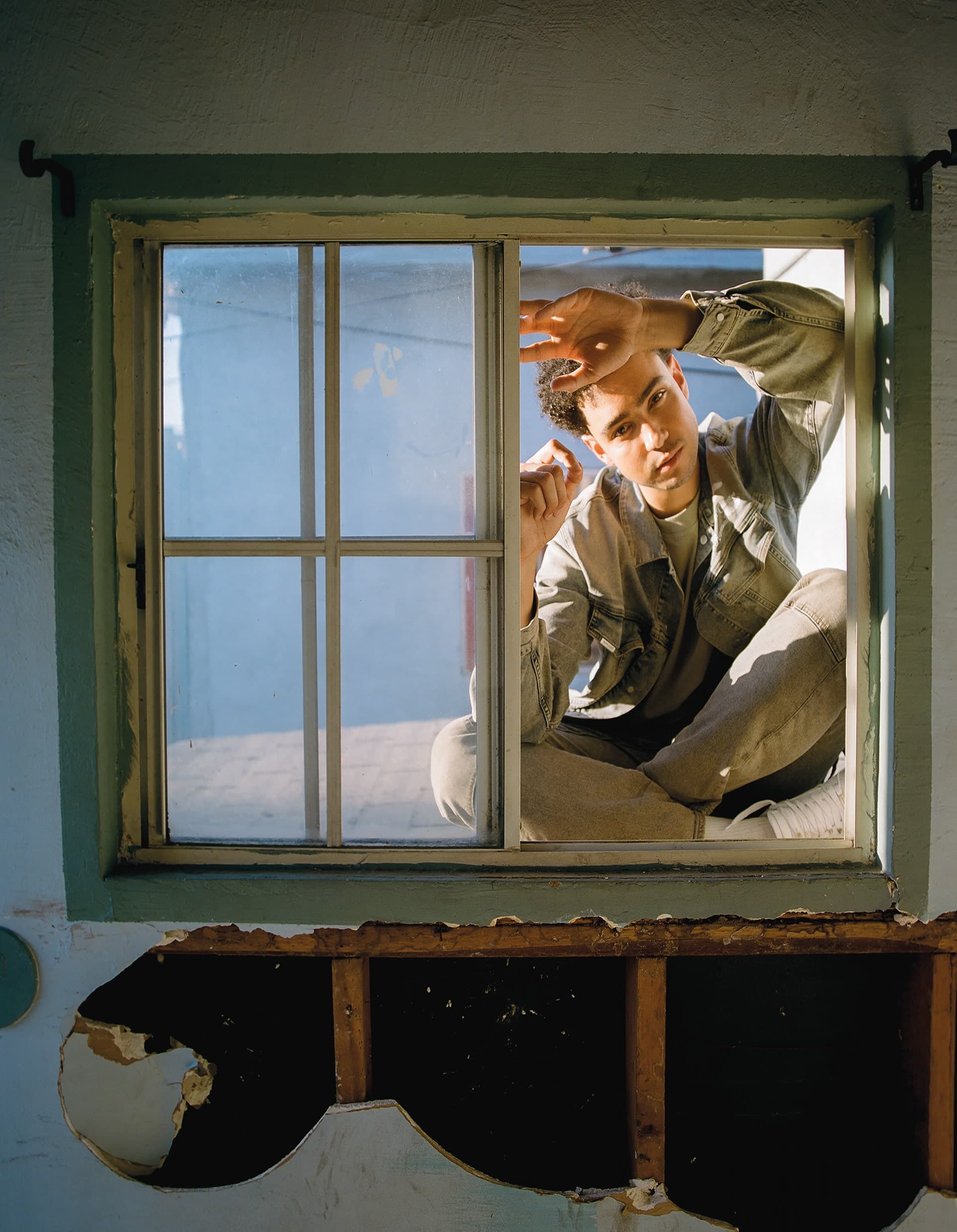
Madekwe himself attended the Brit School, following in the footsteps of the likes of Adele and FKA twigs. He’s endlessly grateful for coming of age in such a special space, where creativity is actively
encouraged and not seen as a second-class subject. With the UK government continuing to cut funding to arts education in schools (in 2021, the Tories approved a 50 per cent cut for art and design subjects) and attempting to curb the pursuit of so-called “low value” degrees, spaces like the Brit School are vital, especially for young people from lower-income backgrounds who might not otherwise have as many opportunities to enter creative careers.
“It was a little bit debilitating when I left because the bubble popped and I was like, ‘Oh God, the rest of the world isn’t like this, but why is it not like this? It’s so easy to make it like this, to be respectful of everybody and their choices and who they want to be,” Madekwe reflects. But in the world beyond the Croydon-based performing arts school, creativity isn’t always valued as highly, particularly by those in positions of power.
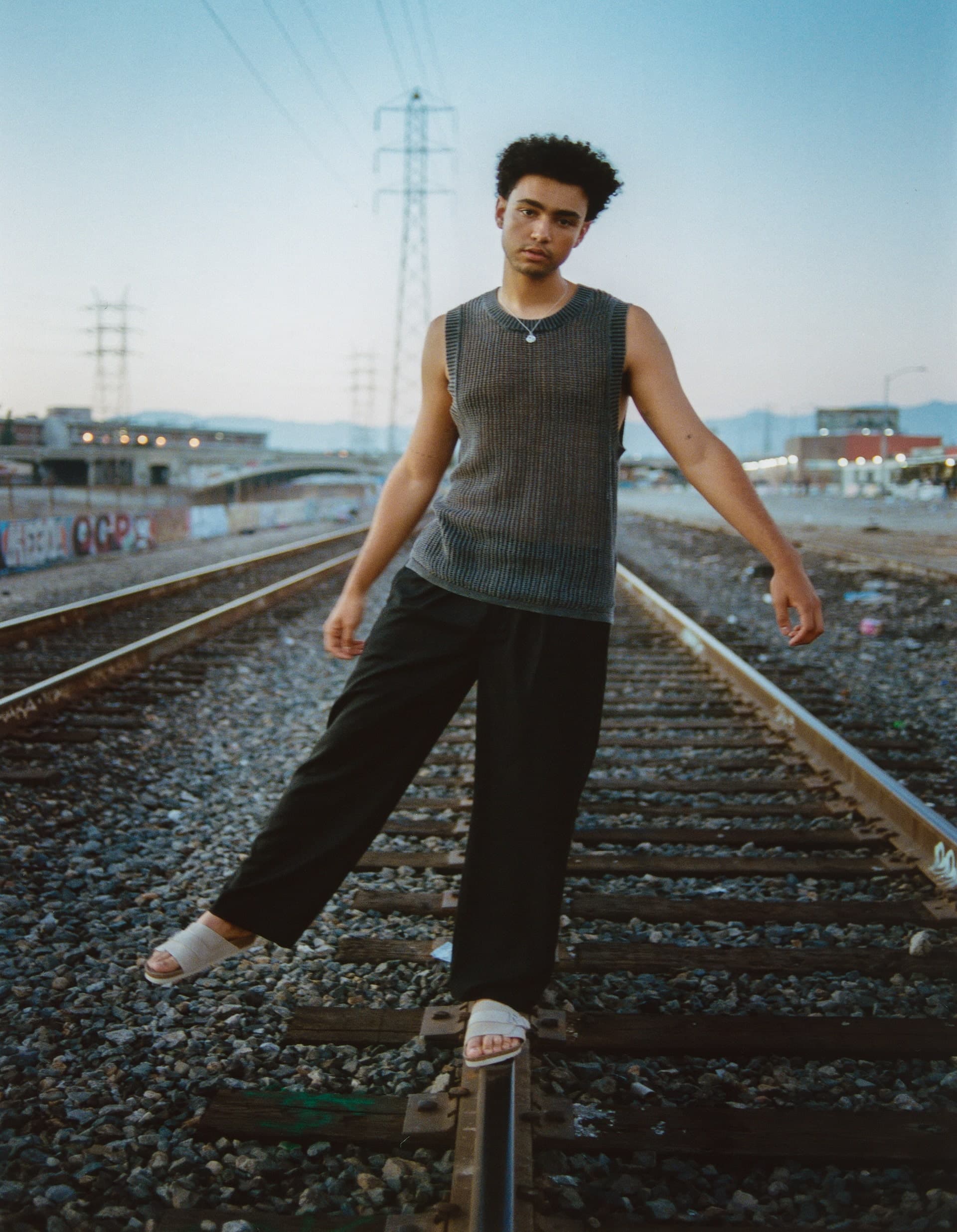
While Madekwe is an actor first and foremost, his desire to improve representation for the next generation of Black kids goes far beyond the screen. His work with The Black Curriculum – a social enterprise that aims to tackle the Eurocentricity intrinsic in British curriculums – is helping promote the teaching of Black history in schools. “I think education is the only way that we can begin to eliminate the disparity that we have in the UK,” he says. “As soon as we realise this country is all of ours, and has been for so many years, any stigmas around Black people’s ownership of the country just melt away.”
Without funding, whether for arts education or fair wages, these important stories that offer the representation Madekwe needed growing up would never be told. Without art, without TV, film and theatre that reflects the lives of all of us, there might still be kids somewhere who think that they will never fall in love. Or never be actors. Or never have the opportunity to dream in that crazy, expansive way that we should all be allowed to dream.
“Every time a young, mixed-race person comes over to me and tells me how excited they are about a film coming out, it really warms me,” he concludes with a smile. “It’s one of the reasons I find playing real people so exciting and telling real stories about people we haven’t heard of, because the more we can see ourselves and the history of people around us, the more we feel like we belong. And I think that is really, really important.”
